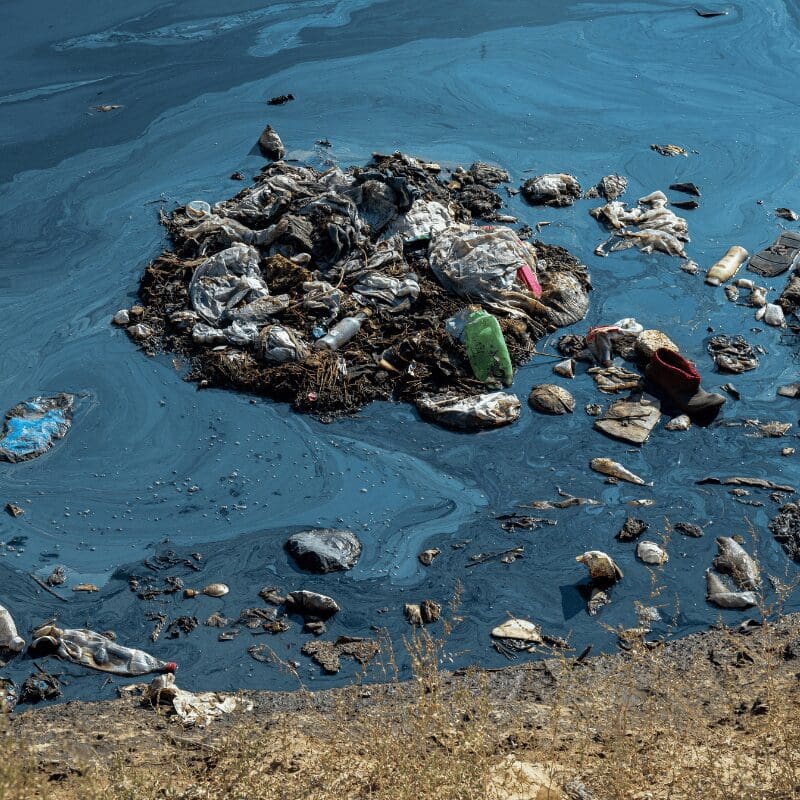
Understanding the Chronic Health Effects of Polluted Water in St. Louis
Water is the source of life, and its quality directly impacts our health. As drinking water experts, understanding the intricate relationship between water pollution and chronic diseases is pivotal in understanding how we can better support your business and your office’s drinking water needs. However, as a business owner in St. Louis, MO, it’s also vital for you to understand how low-quality drinking water affects employee health. So, Artesian Bottleless Water is here to explain some of the severe chronic health effects of polluted water.
Health Effects of Polluted Water
Water pollution is known to cause various health issues, from acute illnesses to more insidious chronic conditions. It’s important to note that chronic exposure to contaminated water can lead to a variety of long-term health effects that often go undetected. While there are undoubtedly other factors at play regarding employee health and the quality of St. Louis tap water, we can’t ignore the impact water quality has on all of us. And if we spend most of our time at the office, clean, safe drinking water is a must. Here are just a few ways polluted water affects our health.

Cardiovascular Diseases
Polluted water often contains a large amount of heavy metals. Medical evidence suggests that the presence of these heavy metals in water, such as lead and cadmium, can contribute to an increased risk of cardiovascular diseases. Long-term exposure to these pollutants can lead to high blood pressure, a significant risk factor for heart attacks and strokes. While anyone at any age can be affected, if you start to notice that your seasoned employees are falling ill more often, your drinking water source might be worth investigating.
Respiratory Issues
The implications of respiratory issues stemming from polluted drinking water are especially concerning for the workforce of St. Louis, MO. Employees suffering from water-induced respiratory conditions like asthma or chronic bronchitis may experience increased absenteeism, reduced productivity, and compromised workplace well-being. For businesses, the consequences are twofold: there’s a direct impact on operational efficiency and an indirect toll on employee morale. Prioritizing clean drinking water isn’t just a health prerogative—it’s a strategic business decision that can foster a healthier, more productive working environment.

Neurological Disorders
Exposure to polluted drinking water can have severe implications on neurological health, particularly due to contaminants like mercury and lead. These toxins are capable of crossing the blood-brain barrier, potentially leading to cognitive deficits and increasing the risk of neurodegenerative diseases such as Alzheimer’s and Parkinson’s, especially in aging employees. For staff members nearing retirement, this threat is even more pronounced. With years of cumulative exposure, their cognitive reserves are at stake, leading to concerns over their quality of life post-retirement. In the workplace context, these neurological effects can manifest as decreased focus and productivity, affecting both individual performance and collective output. Prioritizing filtration and regular testing of office water supplies can not only prevent these health risks but also preserve the cognitive capabilities of your veteran employees, ensuring their well-being now and in the future.
Reproductive Health Implications
Research has unveiled a worrying link between polluted drinking water and reproductive health issues that can adversely affect employees and expectant parents alike. Contaminants such as pesticides, pharmaceuticals, and hormones found in tap water sources are all associated with fertility problems, developmental disorders in newborns, and even an increased risk of miscarriages. In an office setting, this can translate into heightened anxiety for employees planning families and potential medical leaves that affect the dynamics of the workforce. A steadfast commitment to securing clean water in the office via advanced filtration systems is essential to safeguard the health of current employees and support future generations’ well-being.
Research Findings on Chronic Health Impacts
Public health researchers have been diligently studying the long-term health impacts of water pollution across the United States. Findings consistently highlight the disproportionate burden carried by disadvantaged communities with limited access to clean water. Even some communities in St. Louis are impacted, further underscoring the importance of clean, pure drinking water access.
A Closer Look at St. Louis Water Quality Research
In St. Louis, tap water primarily comes from the Mississippi River, with additional supply coming from the Meramec River. These sources undergo treatments at two state-of-the-art water treatment plants before reaching consumers. However, despite these processes, concerns about water quality persist.
Recent studies, such as those conducted by the Environmental Working Group, have raised questions about contaminants in local drinking water. Specifically, levels of chloroform and other trihalomethanes, which are byproducts of water disinfection, have drawn scrutiny for their potential links to cancer and reproductive issues.
Moreover, research by the Missouri Department of Natural Resources has pointed out that agricultural runoff and urban stormwater are leading contributors to the pollution in Missouri’s rivers, bringing with them pesticides and industrial chemicals that can potentially degrade water quality.
Residents and businesses in St. Louis must be aware of their water source and the possible contaminants. While the city’s water treatment facilities work tirelessly to provide safe drinking water, relying on in-office filtration systems can add an extra layer of protection against potential health risks tied to waterborne pollutants.
The Artesian Solution: Multi-Stage Filtration for Superior Water Quality
At Artesian, we recognize the critical importance of access to clean, contaminant-free drinking water. That’s why our bottleless water coolers are equipped with a cutting-edge multi-stage filtration process designed to remove up to 99% of waterborne pollutants, ensuring that every sip from our coolers is safe and exceptional in quality and taste.
The first stage of our filtration process targets larger particles, such as sediments and rust, effectively reducing turbidity and protecting subsequent filters. This is followed by an activated carbon filter that removes chlorine, volatile organic compounds (VOCs), and other odors and tastes associated with chemical contaminants. Our advanced reverse osmosis or ultrafiltration membrane is the heart of the system, dealing with the minutest of contaminants, including heavy metals, bacteria, and viruses.
The final touch in our filtration system is an essential minerals booster. This stage reintroduces beneficial minerals like calcium and magnesium back into the water. These minerals enhance the flavor, creating a fresh, natural taste that’s unparalleled and contributes to better hydration and absorption by the body.
By incorporating our advanced multi-stage filtration into your office in St. Louis, MO, you are choosing a solution that is as health-conscious as it is environmentally sustainable. Experience the Artesian difference and elevate your drinking water experience to one of purity, safety, and great taste.



